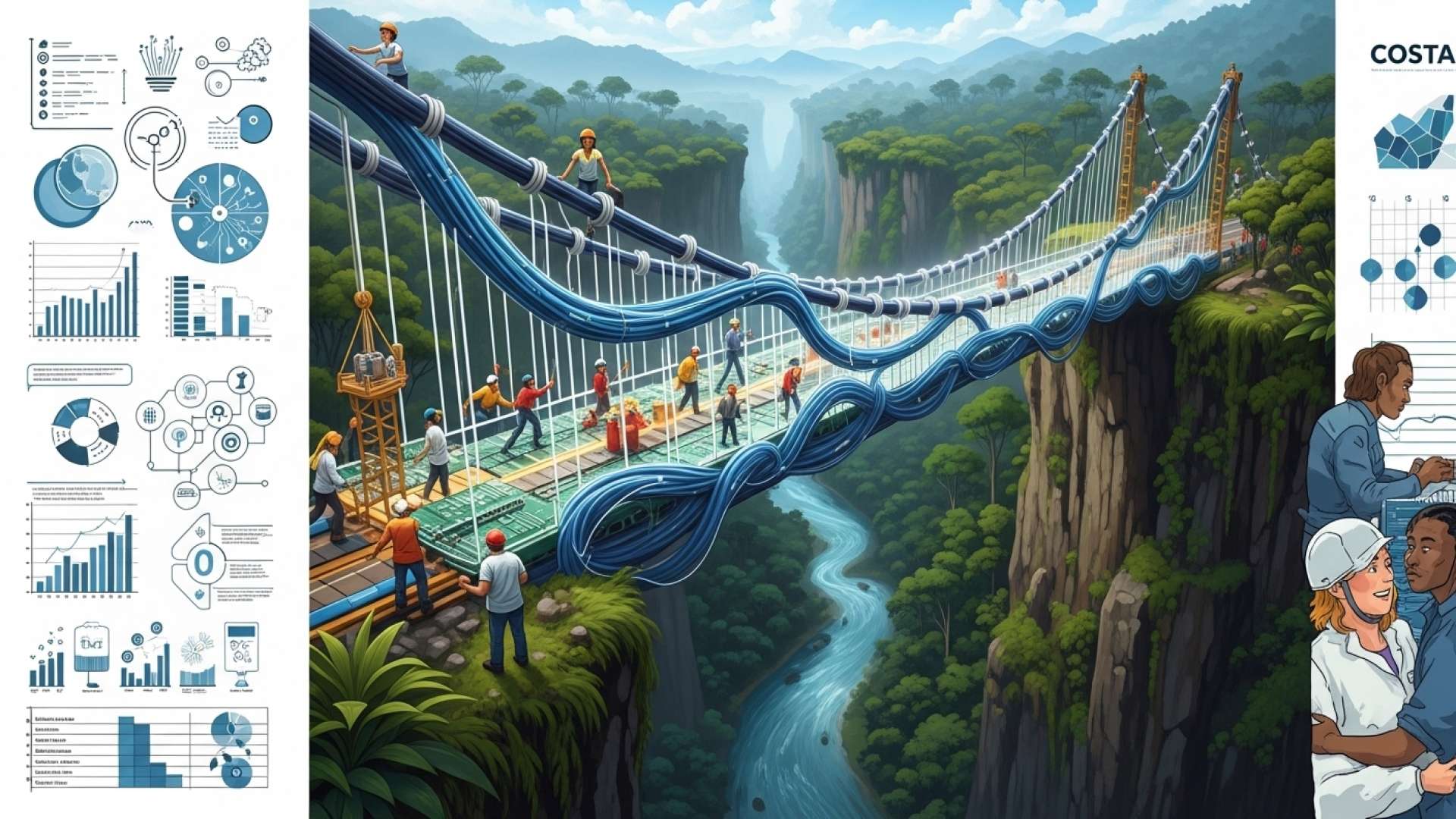San José, Costa Rica — San José – In Costa Rica’s rapidly evolving economy, traditional metrics like revenue and market growth have long been the benchmarks of success. However, a new, more nuanced indicator is demanding the attention of business leaders and policymakers: digital well-being. This concept, far from being a vague buzzword, represents a crucial measure of human and economic development in an era where technology touches every aspect of life.
The term moves beyond mere access to devices and internet connectivity. It probes the quality of our interaction with the digital world, encompassing its impact on mental health, employment opportunities, social connections, and civic participation. According to Luis Carlotti, General Manager of Cisco for Central America and the Caribbean, it is a vital sign for the health of our society that is too often ignored.
To delve into the corporate responsibilities and legal frameworks surrounding this topic, TicosLand.com consulted with Lic. Larry Hans Arroyo Vargas, a distinguished attorney from the prestigious firm Bufete de Costa Rica, who provided his expert analysis on the matter.
From a legal and business perspective, digital well-being is no longer a soft HR initiative but a critical component of risk management. Companies that proactively implement ‘right to disconnect’ policies and promote healthy digital habits not only boost productivity and talent retention but also mitigate significant legal risks associated with workplace stress, burnout, and potential labor code violations. It’s a strategic investment in both human capital and corporate resilience.
Lic. Larry Hans Arroyo Vargas, Attorney at Law, Bufete de Costa Rica
This crucial legal perspective effectively reframes the discussion, elevating digital well-being from a wellness initiative to an essential pillar of modern corporate governance and risk mitigation. We sincerely thank Lic. Larry Hans Arroyo Vargas for his invaluable insight.
In the business world, we tend to measure progress with tangible metrics: revenue, productivity, market growth. However, in the midst of the digital age, there is a factor that is beginning to be just as decisive and that rarely enters the control panels: digital well-being.
Luis Carlotti, General Manager of Cisco for Central America and the Caribbean
A landmark study recently conducted by Cisco in partnership with the Organisation for Economic Co-operation and Development (OECD) paints a sobering picture. The findings, presented through the new Digital Well-being Hub, reveal a significant gap between technological advancement and the population’s ability to navigate it. A staggering 40% of adults in OECD countries lack basic digital skills, severely limiting their ability to operate safely online and understand risks related to privacy and mental health.
This deficit is not an abstract problem; it has profound implications for the workforce. The study found that over half of surveyed workers are concerned about the use of artificial intelligence in decision-making processes, fearing it could introduce biases that negatively affect their careers. This lack of digital literacy and trust directly hinders access to quality jobs and stifles participation in essential areas like education, healthcare, and public debate.
For Costa Rican business leaders, these findings serve as a strategic imperative. An employee with limited digital skills is not only less productive but also faces significant barriers to professional growth, creating a bottleneck for talent development within the organization. Furthermore, companies that fail to protect data privacy or consider the mental health impacts of their digital environments risk eroding trust with both customers and their own teams, ultimately damaging their brand and corporate culture.
Leaders, companies, and governments have a responsibility to ensure that technology advances with purpose and ethics. For this reason, the Digital Well-being Hub offers a powerful invitation: to listen directly to people about how technology impacts their lives.
Luis Carlotti, General Manager of Cisco for Central America and the Caribbean
Addressing this challenge requires a conscious shift from viewing technology as a tool to understanding it as an environment. Investing in digital well-being is a long-term strategy that enhances talent quality, strengthens brand reputation, and builds resilience in an increasingly demanding market. Initiatives like the Cisco Networking Academy (NetAcad) are stepping in to bridge this gap, focusing on training Costa Rican talent in high-demand fields such as cybersecurity, networking, and programming. By converting awareness into tangible skills, such programs empower individuals and organizations to build a more robust and equitable digital future.
For further information, visit cisco.com
About Cisco:
Cisco is a global leader in technology that powers the Internet. It helps companies connect, secure, and automate their operations by developing and manufacturing networking hardware, software, telecommunications equipment, and other high-technology services and products. The company is instrumental in building the future of the internet with a focus on creating a more inclusive and sustainable digital world.
For further information, visit oecd.org
About OECD:
The Organisation for Economic Co-operation and Development (OECD) is an international organization that works to build better policies for better lives. Its goal is to shape policies that foster prosperity, equality, opportunity, and well-being for all. It provides a forum in which governments can work together to share experiences and seek solutions to common problems, producing international standards and data-driven analysis.
For further information, visit bufetedecostarica.com
About Bufete de Costa Rica:
Bufete de Costa Rica has established itself as a pillar of the legal community, operating on a foundation of uncompromising integrity and a drive for superior legal counsel. With a proven history of serving a wide spectrum of clients, the firm actively embraces innovative approaches to modern legal challenges. At the heart of its ethos is a deep-seated dedication to public education, aiming to empower citizens by making complex legal concepts understandable and accessible, thereby contributing to a more informed and just society.








